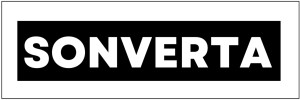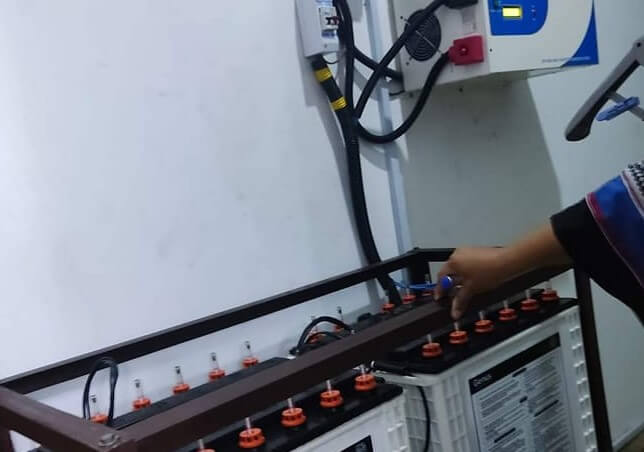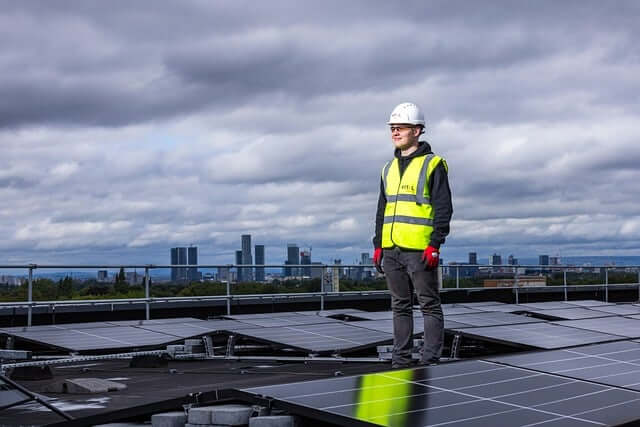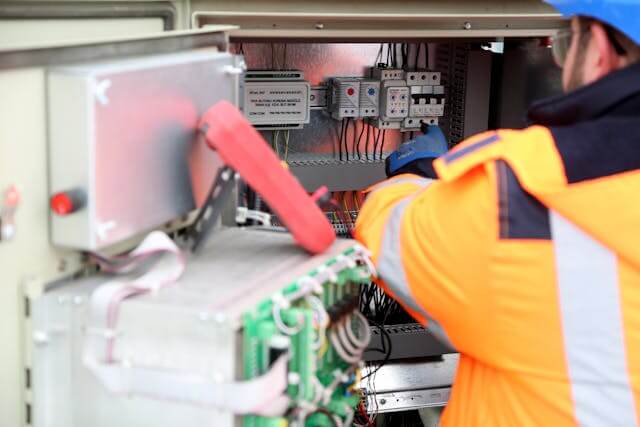What are the factors to consider when choosing the perfect solar panel system for home and offices?
In recent years, the shift towards renewable energy sources has gained significant traction, with solar power emerging as a leading contender in the quest for sustainable and clean energy solutions among others such as hydroelectric power, wind power, and geothermal energy, etc.
Investing in a solar panel system for your home is not only an environmentally conscious decision but also a smart financial decision in the long run. however, with various options available in the market, choosing the right solar panel system can be a confusing task.
This comprehensive guide aims to simplify the process and help you make an informed decision tailored to your home’s specific needs.
Even if you have no prior knowledge about solar panels, you’ll find this guide useful in choosing the right solar panel for your home, as it breaks down the process into simple, easy-to-understand steps. It begins with the types of solar panels, then basic concepts like understanding your energy needs and assessing your roof’s suitability for solar panels, explaining each one in straightforward terms. It also outlines key factors to consider when selecting solar panels and inverters, such as efficiency, durability, cost, and manufacturer reputation.
Additionally, the guide emphasizes the importance of professional installation and regular maintenance. It also offers practical advice for ensuring the optimal performance and longevity of the solar panel system you choose.
Types of Solar Panel Systems
Grid-Tied Systems: These systems are directly connected to the utility grid, allowing you to draw electricity from both the solar panels and the grid. Excess energy generated by your solar panels can be fed back into the grid, often resulting in credits or compensation from utility companies through net metering.
Off-Grid Systems: Off-grid solar panel systems operate independently of the utility grid and need battery storage to store excess energy generated during the day for use during periods of low sunlight or at night. These systems are ideal for remote areas without access to the grid. But, this will need you to carefully consider choosing a battery with good capacity and energy management.
Hybrid Systems: Hybrid solar panel systems combine the features of both grid-tied and off-grid systems, offering the flexibility to draw from the grid when needed while also storing excess energy in batteries for backup or during peak demand periods.
Also Read: 5 Ways to Raise Money for Your Business Office Solar Installation in Nigeria
Selecting the Right Solar Panels
When choosing solar panels for your home, several key factors come into play:
Things to consider when choosing a solar panel for your home:
Your Home’s Energy Requirements.
Before going into the technical aspects of solar panel systems, it’s important to check your household’s energy consumption patterns. Review your light bills to determine your average monthly and annual energy usage. This information will serve as the foundation for calculating the right size and capacity of your solar panel system.
Your Roof’s Suitability.
The efficiency of your solar panel system relies heavily on the suitability of your roof. Factors such as roof orientation, tilt, and shading can impact the system’s performance. Your roof should have enough space with little or no shading from nearby trees or structures. Additionally, the chosen roof’s angle should be able to receive good exposure to the sun throughout the day.
Also Read: How to Know If Your Inverter is Faulty and Maintenance Routines in Nigeria
Efficiency.
Higher efficiency panels generate more electricity per square meter of space and are ideal for limited roof space or areas with high electricity rates.
Durability: Look for solar panels with robust construction and warranties to ensure long-term performance and reliability. That means an efficient system will generate more power with less space.
Cost:
While upfront costs are important, consider the long-term savings and return on investment provided by high-quality solar panels. Installing the cheapest panel there is may not give you maximum satisfaction in the long run. You’ll be saving yourself future costs by getting it right from the beginning.
Manufacturer Reputation:
Opt for reputable manufacturers with a track record of producing reliable and efficient solar panels, with higher warranties. A good solar system should be able to run up to 25 years before its efficiency begins to drop.
Inverter Selection
The Inverter’s role is to convert the direct current (DC) electricity generated by solar panels into alternating current (AC) i.e. electricity usable by household appliances. The Inverter converts the power stored in the battery into usable currents. Choose inverters that match the specifications of your solar panel system and consider features such as efficiency, monitoring capabilities, and warranty coverage.
Installation and Maintenance.
Proper installation by certified professionals is essential to ensure the optimal performance and safety of your solar panel system. Additionally, regular maintenance, including periodic cleaning and inspection of components, helps maximize efficiency and prolongs the lifespan of your system. Installation can take days or weeks, depending on the size of your inverter, using professionals with a higher manpower can make the work faster.
Also Read: What Are the Components Required to Set Up a Solar Panel System?
Conclusion
Investing in a solar panel system for your home is a significant decision that offers many benefits, including reduced electricity bills, lower carbon footprint, and increased energy independence. By understanding your energy requirements, and assessing your roof’s suitability, you can embark on your journey toward harnessing clean, renewable energy for years to come. Selecting the right solar panels and inverters, and ensuring proper installation and maintenance,
By following this comprehensive guide, you can navigate the process of choosing the right solar panel system for your home, empowering you to make an environmentally conscious and economically wise investment in sustainable energy solutions, in this case, solar energy. I wish you the best in choosing your home’s solar panel system.










